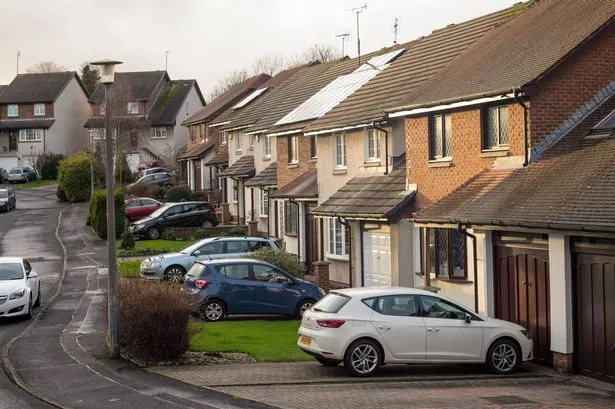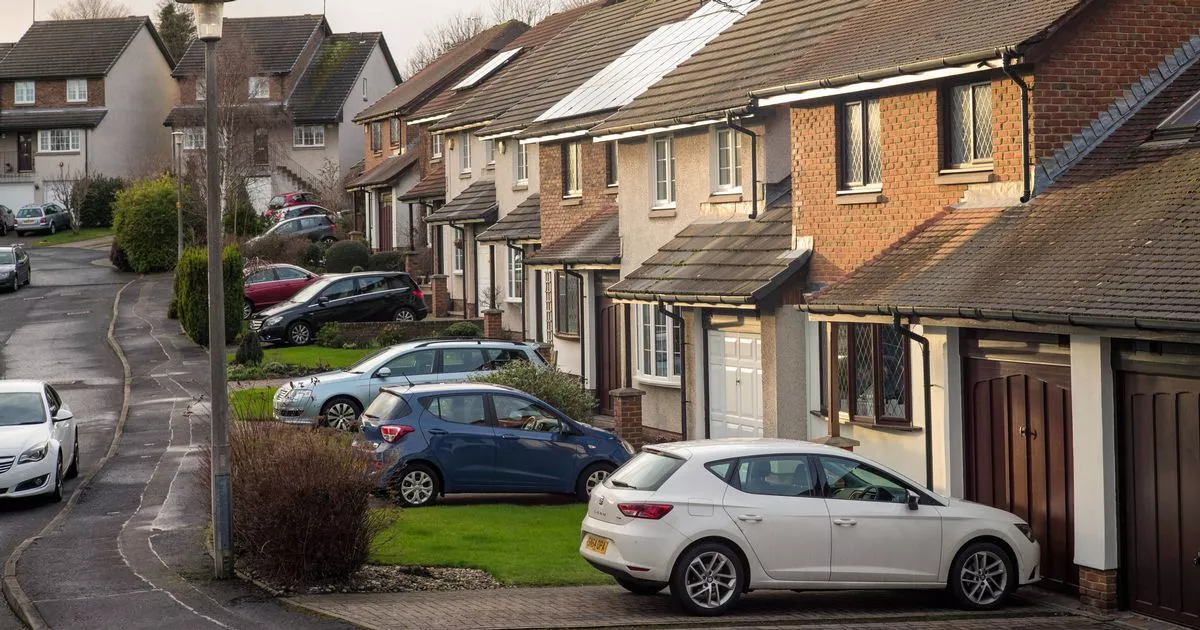The findings, calculated by Carmoola, a digital car finance lender, follow the energy regulator’s price cap increase and Chancellor Rachel Reeves’ Spring statement Cars parked on driveways in a UK street [stock image](Image: georgeclerk via Getty Images)
Cars parked on driveways in a UK street [stock image](Image: georgeclerk via Getty Images)
Following Ofgem’s price cap that kicked in from April 1, EV drivers are expected to shell out an additional £2.84 million a month, totalling £35 million, according to calculations by digital car finance lender Carmoola. This comes on the heels of Labour Party Chancellor Rachel Reeves’ Spring statement, which reinstated car tax for EV drivers at £195 annually for most.
The average cost to fully charge an electric vehicle at home in the UK is predicted to rise from £14.91 to £16.21 (£1.30 increase) starting April 1. This means that those charging their cars twice a week will be paying around £32 monthly or £128 a month.
READ MORE: Save 20% on ‘painless’ hair removal device that delivers ‘amazing results’
Given there are 1.2 million EVs across the UK and the average home car charger uses 108kWh per month, motorists are projected to spend roughly £35 million a month on charging due to the energy price hike. This represents a £2.84 million increase from the estimated March 2025 expenditure of £32.2 million.
While, from April 1, 2025, EV drivers will no longer be exempt from car tax. For vehicles registered on or after this date, drivers will pay a first-year rate of £10, followed by the standard annual rate of £195 from the second year onwards.
EVs registered between April 1, 2017, and March 31, 2025, will move straight to the standard rate of £195 a year (£16.25 per month), reports Birmingham Live. Amid financial reforms, the Government is nudging older vehicles into a higher expense bracket; cars from March 2001 onwards will face a fresh £20 annual vehicle excise duty (VED), leading to a £19.5 million monthly tax increase for electric motorists as part of efforts to cultivate a ‘fairer tax system’.
The founder and CEO of Carmoola, Aidan Rushby, expressed his concerns over the financial challenges faced by electric vehicle (EV) owners: “Ofgem’s price cap adjustments impact households across the UK, and while the warmer months may ease the burden of heating and lighting costs, rising energy prices continue to drive up monthly bills for electric vehicle (EV) owners.
“With a 6.4% increase in the next price cap and the Spring Statement confirming the end of car tax exemptions for EVs from April 2025, the financial pressures are mounting.”
Rushby also shared insights from recent research highlighting the effects on consumer behaviour: “Our recent survey revealed that nearly a third of Brits would avoid switching to an EV due to rising energy costs – a figure that’s likely to rise following these latest announcements.
“As we move closer to the 2030 ban on new petrol and diesel car sales and more EVs take to the roads, affordability will be a key concern for drivers.”
To combat the escalating charges, he offered a suggestion to EV users: “To help manage costs, we recommend EV owners charge at home where possible and check if their energy provider offers off-peak tariffs, which can significantly cut down charging expenses.”
